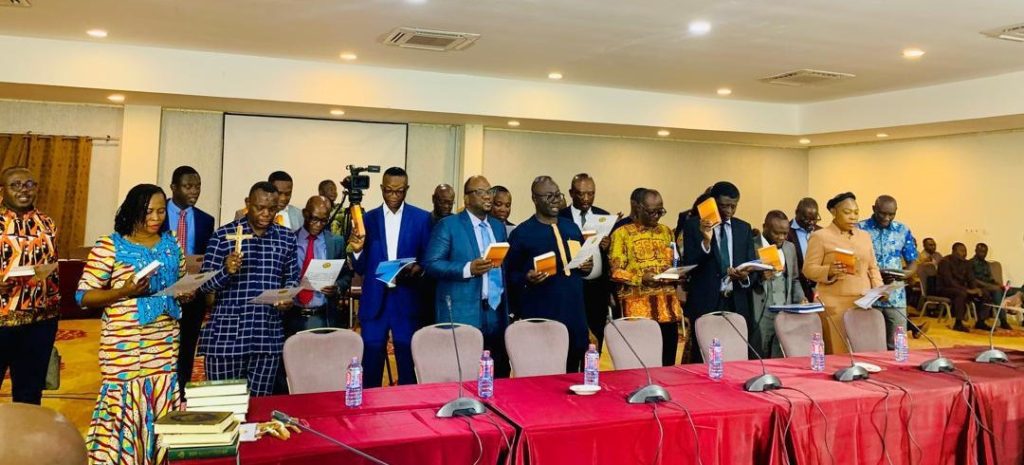By Michael Foli Jackidy
Ho (V/R), Sept. 18, GNA – Dr James Klutse Avedzi, the Chairman of the Public Accounts Committee (PAC), has called on the management of Technical and Traditional Universities to address loopholes in sponsorship agreements for lecturers granted study leave to further education.
He urged Universities to strengthen the guarantor system to ensure that if sponsored lecturers fail to return and fulfill their obligations, the guarantors can be held financially accountable.
Dr. Avedzi made these remarks during a media briefing in Ho, following the first day of PAC’s sitting, which covered Technical Universities from Greater Accra, Eastern, and Volta Regions, as well as Colleges of Education, Senior High Schools, and District and Municipal Assemblies.
His comments were prompted by a case involving nine lecturers from Koforidua Technical University, who had been sponsored to pursue PhD programs abroad but failed to return and fulfill their contractual obligations.
This issue was highlighted in the Auditor-General’s report, which revealed that Koforidua Technical University had spent GH₵2,006,300 on sponsorship for these lecturers.
The management of the University has so far recovered only GH₵105,000, leaving an outstanding amount of GH₵1,901,300.
Dr Avedzi expressed concern over the recurring nature of this issue, noting that it has been a long-standing challenge for many universities.
He emphasized the need for institutions to implement more stringent measures to prevent such defaults.
“This is a recurring issue we have observed in audit reports over the years,” Dr. Avedzi said.
“Many of these lecturers, after benefiting from government sponsorship, fail to return to serve the nation. The government spends significant resources to train them and pays their salaries during their studies with the expectation that they will return and contribute to national development. However, many remain in their countries of study, which is a major problem.”
To address this, Dr Avedzi urged the Ghana Tertiary Education Commission (GTEC) to collaborate with universities in tightening the guarantor clauses in sponsorship agreements.
He stressed that this would ensure the recovery of funds if beneficiaries fail to meet their obligations.
Strengthening these clauses would also create a more accountable system, where guarantors would be responsible for repaying the funds in cases of default.

He called on universities to devise effective strategies to retrieve outstanding amounts from lecturers who have breached their agreements.
This would not only safeguard public funds but also ensure that the resources invested in training personnel are used for the intended purpose of advancing education and national development.
Dr Avedzi’s remarks underscore the importance of accountability in the management of educational sponsorship, particularly in the context of higher education institutions.
As the government continues to invest in the professional development of lecturers, it is crucial that these resources are protected, and that the beneficiaries fulfill their commitments to serve the country.
GNA